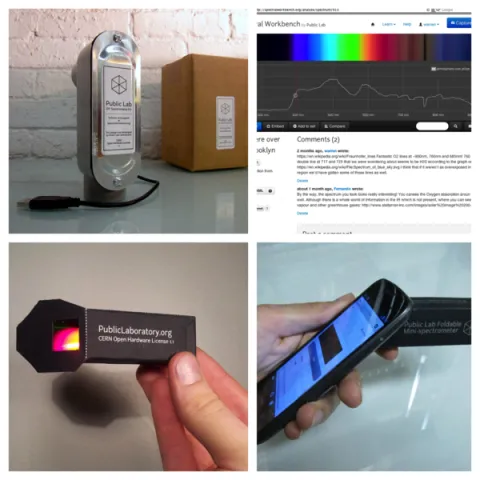
The Public Laboratory for Open Technology and Science (Public Lab) is a community -- supported by a 501(c)3 non-profit -- which develops and applies open-source tools to environmental exploration and investigation. By democratizing inexpensive and accessible Do-It-Yourself techniques, Public Lab creates a collaborative network of practitioners who actively re-imagine the human relationship with the environment.
The core Public Lab program is focused on "civic science" in which we research open source hardware and software tools and methods to generate knowledge and share data about community environmental health. Our goal is to increase the ability of underserved communities to identify, redress, remediate, and create awareness and accountability around environmental concerns. Public Lab achieves this by providing online and offline training, education and support, and by focusing on locally-relevant outcomes that emphasize human capacity and understanding.
Democratizing data and science through the Kits Initiative
Public Lab works to "level the data playing field,” making it possible for people to issue rigorously collected, high-quality, local environmental datasets for use alongside government data for verification and advocacy. We do this by building curriculum, hardware, and software; providing space for research and development; and bringing tools to maturity, making them field ready.
The Kits Initiative creates, assembles, and distributes kits from the open research designs of the Public Lab community to foster and develop the reach of open, accessible science, by placing tools in the hands of those that need them. Revenue from the kits program directly supports the Public Lab nonprofit.
Kits Initiative Objectives
The two main goals of the program are:
-
Building a space to create “big data” through “small data” from grassroots sources through the development of a data publishing platform, formatting citizen-collected data to be comparable to government data, and making data actionable by communities to agitate for change, online and offline, and;
-
Scaling the development and production of kits, and developing novel kits, to enable over 20,000 participants to produce their own civic data by 2016.